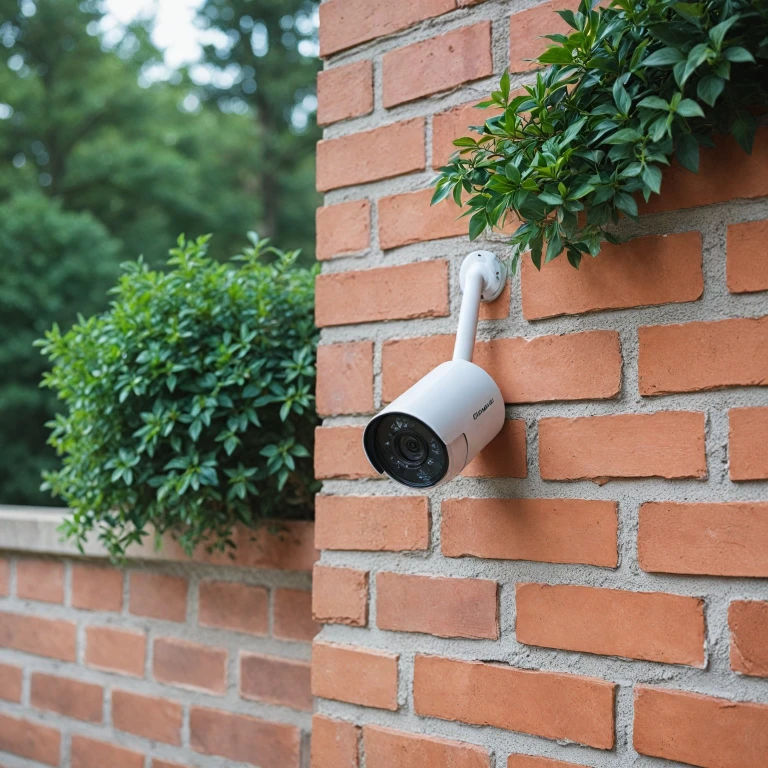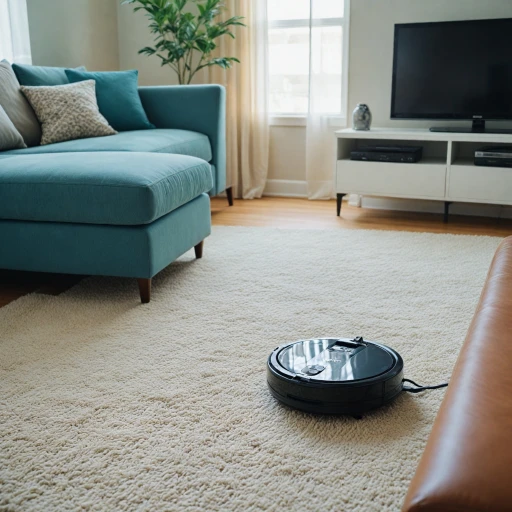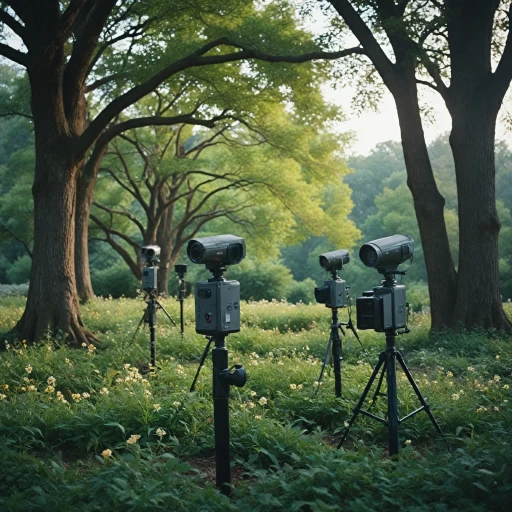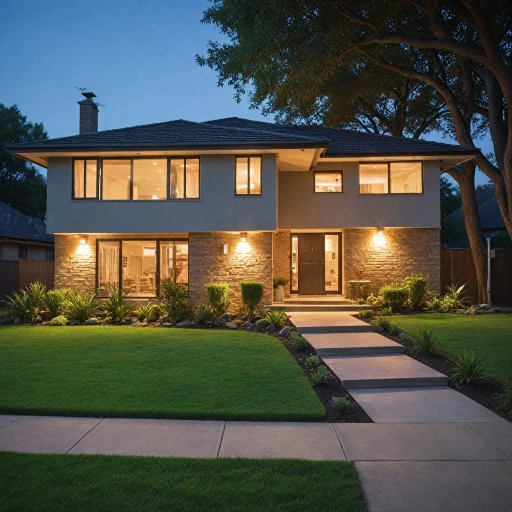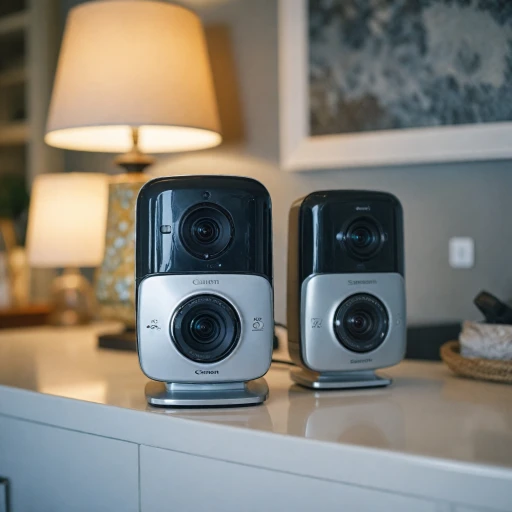
Understanding Wired Security Cameras
The Basics of Wired Security Camera Systems
Wired security camera systems have long been a reliable choice for homeowners. These systems utilize cables to connect cameras directly to a central recording device, often called a DVR or NVR, via a network during installation. This setup ensures a stable connection, reducing risks associated with signal interference commonly observed in wireless cameras.
Power Source and Reliability
A key advantage of wired security systems is their consistent power source. Since they are connected to your home's electrical system directly, they do not rely on battery power, ensuring continuous operation. This eliminates concerns over battery life and power outages that may affect wireless systems, where battery-powered alternatives are available but may not offer the same reliability.
Pros and Cons of Installation
Installation of wired security cameras can be more complex and time-consuming. It often requires professional assistance to effectively run wires through walls and ceilings while maintaining a clean appearance. However, post-installation, these systems generally require less maintenance compared to their wireless counterparts, which operate over wifi networks.
If you are considering the best option for your home, it's crucial to evaluate the trade-offs in terms of installation costs, system performance, and the ability to access surveillance footage without interruptions. For further insights, evaluating whether you need a specialized SIM card could be key when weighing your options. Read more about choosing the right SIM card for your home security camera.
Exploring Wireless Security Cameras
Examining Wireless Home Security Cameras
As technology continues to evolve, wireless security cameras have become increasingly popular for home surveillance needs. Unlike their wired counterparts, wireless cameras offer a convenient and flexible solution for homeowners looking to enhance their security systems without the hassle of extensive wiring. Wireless cameras transmit video and audio signals through a WiFi or other radio frequency connection, allowing for a more streamlined installation process. This is advantageous for those who want to avoid the labor-intensive task of drilling holes and laying wires around their homes. These cameras are particularly beneficial for those who live in rented properties where permanent changes cannot be made. One of the key benefits of wireless security cameras is their ability to be placed in a variety of locations around the home. This flexibility ensures you can cover critical areas without being limited by the proximity to a power supply. Many wireless camera systems come equipped with a battery-powered option, making them truly "wire-free" and offering the possibility to place them in remote or outdoor locations where a power outlet is not available. The battery-powered feature, however, brings with it the need for regular maintenance to ensure the system remains operational. Wireless cameras typically offer easy access through compatible apps that allow you to view live video feeds remotely from your smartphone or tablet. This feature is particularly useful for those who travel frequently or have irregular schedules. It's important to consider, however, that these wireless systems rely heavily on your network's connection quality. An unstable or weak network can result in reduced video quality or even interruptions in surveillance coverage. For those interested in going wireless for their security needs, a crucial decision factor might be the difference between a system that is completely wire-free and one that requires a wired power source. Wireless cameras that rely purely on battery power can provide greater flexibility but may require more regular interaction for battery replacement or recharging. To understand the various aspects of camera connections and how they influence the effectiveness of your security system, visit the comprehensive guide here, which delves deeper into the essentials of camera connections for home security.Comparing Image Quality and Performance
Image Quality and Operational Efficiency
When it comes to selecting the best security camera system for your home, image quality and operational performance play crucial roles. Both wired and wireless security cameras have their own unique advantages and considerations in this regard. Wired security cameras tend to offer superior image quality due to their consistent power supply and stable network connection. They are equipped to handle high-resolution video streams because they don't have to rely on WiFi stability or battery endurance. This means less disruption and clearer footage, which is particularly advantageous in capturing detailed incidents for peace of mind. On the other hand, wireless security cameras have made significant advancements. Modern systems often deliver high-definition video quality that can compete with their wired counterparts. However, wireless security cameras depend on their WiFi network and battery power, which can occasionally affect performance, especially if the connection or power source is compromised. Despite these limitations, the ease of accessing footage anywhere through online platforms can be very enticing, making them a preferred choice for those looking to integrate surveillance systems into a smart home environment. Operational efficiency isn't just about the camera's ability to record video, but also about how it functions within your home security ecosystem. Wireless systems generally offer more flexibility in terms of placement and are easier to integrate with other smart devices. Meanwhile, wired systems offer robust and reliable performance that continues unaffected even when pressure on home networks is high. For further insights into how these competing systems perform under various conditions, consider enhancing your home safety with a security camera to make informed decisions about protection options.Installation and Maintenance Considerations
Setting up Your Security Cameras: Ease of Installation with Differences
Choosing the right security camera system requires careful consideration of installation and maintenance needs. Wiring and connectivity are primary concerns when deciding between wired and wireless security systems. Most wired security cameras need a comprehensive infrastructure, including cables for power and a continuous video connection. This involves a more complex setup process and might require professional assistance. In contrast, wireless security cameras, especially those that are battery powered or wire free, offer a simpler installation experience with fewer physical connections.Ease of Installation for Wired vs Wireless
- Wired Systems:
- Require power supply through cables and direct network connection
- Often provide consistent video quality due to stable connections
- Ideal for permanent setups, but installation can be invasive and time-consuming
- Wireless Systems:
- Utilize wifi for network connectivity and often need only a power source, making them more flexible
- Battery powered options are free from any wire constraints, allowing for quick setup
- Better suited for renters or temporary installations due to their ease of relocation
Cost Analysis: Wired vs Wireless
Cost Implications: Analyzing Wired and Wireless Security Cameras
When deciding between wired and wireless security camera systems, the cost is a critical factor to consider. Each type of system involves distinct initial and ongoing expenses, impacting your overall investment.
Initial Equipment Costs
Wired security cameras generally require a substantial upfront investment. The cameras themselves may be priced competitively, but the cost scales up when considering the necessary wiring, connectors, and network components. Additionally, professional installation is often needed for optimal setup, adding to initial expenses.
On the other hand, wireless security cameras can be more affordable at the outset. These systems offer a simpler installation process, often eliminating the need for professional assistance. Some models may even provide battery-powered options, reducing the immediate cost linked to power source configurations.
Ongoing Costs
- Maintenance: Wired systems might require less maintenance after installation, as there are fewer components susceptible to interference or needing battery replacements. However, any necessary repairs or adjustments could involve significant effort.
- Battery Replacements: For wireless cameras, regular battery changes or charging might lead to additional incidental costs, especially if opting for wire-free setups.
- Data and Network Usage: Wireless cameras relying on Wi-Fi or cellular data for video transmission often entail ongoing costs for data usage and potential network upgrades.
Value Consideration
When evaluating value, it's essential to balance the initial investment against long-term operational efficiency and reliability. Wired systems often deliver robust, uninterrupted performance due to their stable power connections. Meanwhile, the flexibility and ease of installation associated with wireless cameras can make them the better choice for those seeking hassle-free setups and adaptability.
Deciding on the Best Fit
Consider what aspect holds more weight for you: the upfront expenditure and assured stability of wired systems or the cost flexibility and potential convenience offered by wireless solutions. Each system's pros and cons need equally thoughtful evaluation to ensure you make the best choice for your security and budget goals.
Security and Privacy Concerns
Security and Privacy Concerns: Spotting the Vulnerabilities
When it comes to choosing between wired and wireless security camera systems, understanding the security and privacy implications is crucial. While both systems have their unique advantages and drawbacks, the potential vulnerabilities can significantly influence your decision.
Data Transmission and Encryption
Wireless security cameras often use WiFi for data transmission, which can expose them to risks like interception if proper encryption protocols aren't followed. It’s essential to choose wireless cameras that offer robust encryption tools to safeguard video feed, keeping it away from prying eyes. Wired cameras, on the other hand, transmit data through physical cables, reducing the risk of interception, but it's important to ensure that the network connection is secured properly.
Network Security
The reliance of wireless systems on home networks makes security measures like strong passwords and regular updates crucial for maintaining privacy. Wireless security systems are more vulnerable to hacking attempts if network security is compromised, which can hinder the overall security.
Physical Tampering Risks
Wired cameras, with their fixed positions and visible power supply lines, might be more prone to physical tampering. It is necessary to consider the installation locations carefully to minimize exposure. Conversely, battery-powered wireless security cameras are often more flexible in terms of placement but ensure that access points for maintenance or battery changes are secure from unauthorized access.
Pros and Cons Overview
Each system comes with its own set of pros and cons related to security and privacy:
- Wired Systems: Secure data transmission, but visible wires can be tampered with.
- Wireless Systems: Convenient and aesthetically pleasing with wire-free setup, but requires stringent network security measures.
By weighing these factors, homeowners can make informed decisions that best fit their surveillance needs, ensuring both security and privacy are upheld.

